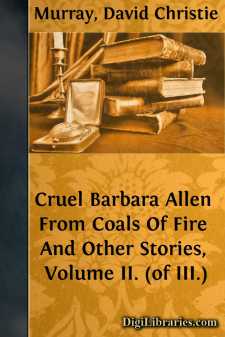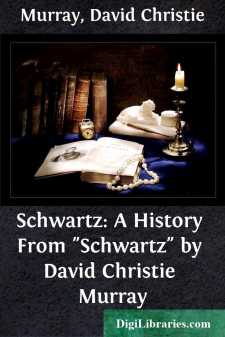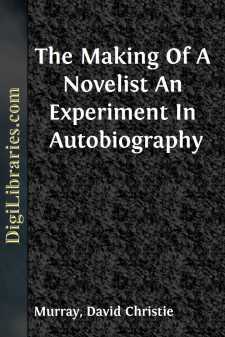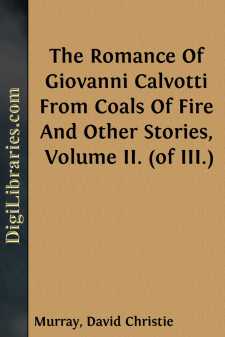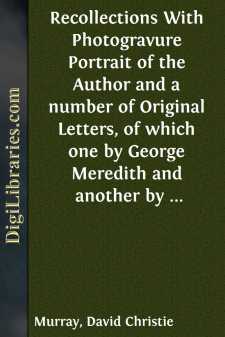Categories
- Antiques & Collectibles 13
- Architecture 36
- Art 48
- Bibles 22
- Biography & Autobiography 813
- Body, Mind & Spirit 142
- Business & Economics 28
- Children's Books 17
- Children's Fiction 14
- Computers 4
- Cooking 94
- Crafts & Hobbies 4
- Drama 346
- Education 46
- Family & Relationships 57
- Fiction 11829
- Games 19
- Gardening 17
- Health & Fitness 34
- History 1377
- House & Home 1
- Humor 147
- Juvenile Fiction 1873
- Juvenile Nonfiction 202
- Language Arts & Disciplines 88
- Law 16
- Literary Collections 686
- Literary Criticism 179
- Mathematics 13
- Medical 41
- Music 40
- Nature 179
- Non-Classifiable 1768
- Performing Arts 7
- Periodicals 1453
- Philosophy 64
- Photography 2
- Poetry 896
- Political Science 203
- Psychology 42
- Reference 154
- Religion 513
- Science 126
- Self-Help 84
- Social Science 81
- Sports & Recreation 34
- Study Aids 3
- Technology & Engineering 59
- Transportation 23
- Travel 463
- True Crime 29
Cruel Barbara Allen From Coals Of Fire And Other Stories, Volume II. (of III.)
Description:
Excerpt
CHAPTER I.
Christopher was a fiddler and a man of genius. Educated people do not deny the possibility of such a combination; but it was Christopher's misfortune to live amongst a dull and bovine-seeming race, who had little sympathy with art and no knowledge of an artist's longings. They contented themselves, for the most part, with the belief that Christopher was queer. Perhaps he was. My experience of men of genius, limited as it may be, points to the fact that oddity is a characteristic of the race. This observation is especially true of such of them as are yet unrecognised. They wear curious garments and their ways are strange. The outward and visible signs of their inward and spiritual graces are familiar to most observers of life, and the aesthetic soul recognises the meaning of their adornments of the hair and their puttings on of apparel. Genius may be said in these cases to be a sort of mental measles exhibited in sartorial form, and it may be supposed that but for their breaking out there would be some fear of their proving fatal. There are reasons for all things, if we could but find them; yet where is the social philosopher who will establish the nexus between a passion for Beethoven and the love of a bad hat? Why should a man who has perceptions of the beautiful fear the barber's shears? There were no social philosophers to speak of in the little country town in which Christopher was born and bred, and nobody in his case strove to solve these problems. Christopher was established as queer, and his townsfolk were disposed to let him rest at that. His pale face was remarkable for nothing except a pair of dreamy eyes which could at times give sign of inward lightnings. His hair was lank; his figure was attenuated and ungraceful; he wore his clothes awkwardly. He was commonly supposed to be sulky, and some people thought his tone of voice bumptious and insolent. He was far from being a favourite, but those who knew him best liked him best, which is a good sign about a man. Everybody was compelled to admit that he was a well-conducted young man enough, and on Sundays he played the harmonium gratis at the little Independent chapel in which that pious and simple pair, his father and mother, had worshipped till their last illness. Over this instrument Christopher—let me admit it—made wonderful eyes, sweeping the ceiling with a glance of rapture, and glaring through the boarders at the ladies' school (who sat in the front of the gallery) with orbs which seemed to see not. The young ladies were a little afraid of him, and his pallor and loneliness, and the very reputation he had for oddity, enlisted the sympathies of some of them.
Whatever tender flutterings might disturb the bosoms of the young ladies in the galleries, Christopher cared not. His heart was fixed on Barbara.
Barbara, who surely deserves a paragraph to herself, was provokingly pretty, to begin with, and she had a fascinating natural way which made young men and young women alike unhappy....


